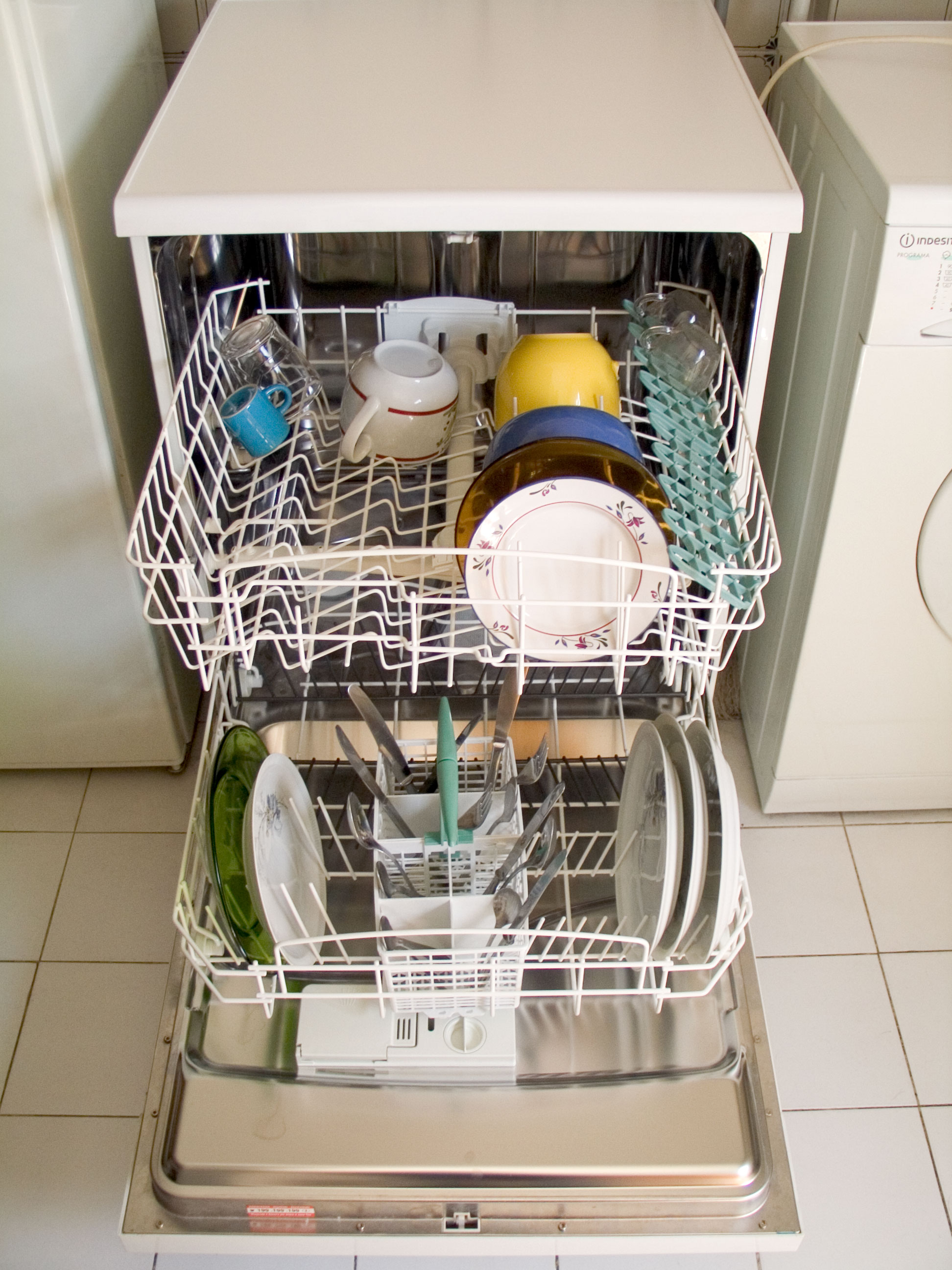 If you have a dishwasher, you probably love the easy of adding the dishes, putting in the detergent, and letting the dishwasher do all the work for you. But, even using the dishwasher may be harmful to the environment.
If you have a dishwasher, you probably love the easy of adding the dishes, putting in the detergent, and letting the dishwasher do all the work for you. But, even using the dishwasher may be harmful to the environment.
First of all, it would help if you had an Energy Star dishwasher. This will save on both energy (some use up to 25% less than traditional dishwashers) and water. Don’t put your dishwasher next to your refrigerator if you can help it. The heat generated by your dishwasher will just cause your refrigerator to work harder to keep cooler.
Another good rule to follow is to not run the dishwasher until it is full. In fact, if you use fewer dishes during the day or reuse the same glass rather than reaching for a new one, you postpone running the dishwasher even longer.
Some cities have off-peak utility hours. If you live in a city that offers this option, run your dishwasher during the off-peak hours to save even more money. You might even be able to program it to run automatically during the night.
Detergent is another concern. Some dishwashing detergents contain phosphate, which can cause phytoplankton and algae to reproduce, causing algal bloom. Okay, what is so bad about algal blooms? Well, the worst type, cyanobateria, can kill humans if a large enough amount is ingested. While it is doubtful your dishwasher is going to kill you (that sounds like a new Stephen King book), you can avoid phosphate just by reading the label.
If you can’t find a detergent that doesn’t use phosphate (or it is too expensive), check the label for the amount of phosphate used and try to select a brand that uses less. Also try to avoid detergents with petroleum free.
Powder detergents are usually lighter than liquids and therefore may be cheaper to ship, which can help save the environment. But, liquid detergents are often concentrated now. You will have to compare the powders and liquids – just because the packaging is bigger doesn’t necessarily mean it is the better value.
Try skipping the pre-rinse cycle to save water. Your dishwasher may be powerful enough to remove the leftover food without this cycle. Also, let the dishes air dry rather than using the drying cycle. Leaving them overnight will usually be enough time to let them dry on their own and save more energy.
Finally, don’t forget to recycle the dishwasher detergent bottle when finished.
(The copyright holder of this image allows anyone to use it for any purpose including unrestricted redistribution, commercial use, and modification.)

